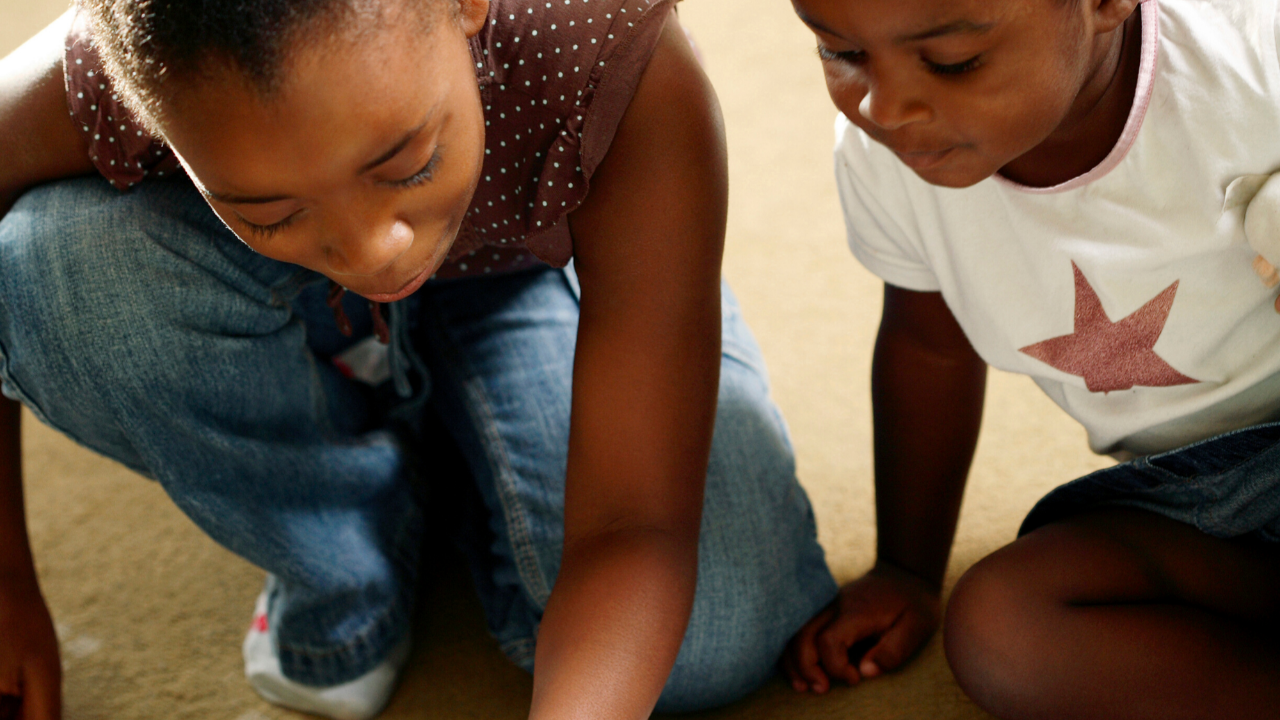Distance Learning | How To Do “School From Home”
Jul 16, 2020
Due to the coronavirus, many schools have gone remote. While teachers have put a tremendous amount of effort into making the transition from school, to school from home, as easy as possible…the fact is, it’s hard!
According to Education Week, school closures due to coronavirus have impacted over 124,000 U.S. schools and at least 55.1 million students. States have closed schools into late April or May, or even closed down for the remainder of the school year!
Parents, educators, and students have had to make the move to online or Distance Learning. This mode of teaching and learning is unfamiliar to most of us. We are all doing our very best to figure it all out, and quickly.
As an elementary school teacher, I am seeing a lot of students {and parents} doing okay with school from home, but many too, are really struggling. Especially our kiddos with special needs.
Challenges like technology {access and knowledge}, working parents, siblings, space, and stress, have made it very difficult for some to maintain their learning.
Here are some suggestions for how families may be able to help their children make the best of or even thrive at, school from home.
1. Establish routines
Of course it’s always helpful to have routines set in place for children. Now, more than ever, it is important to have and maintain those routines. It’s tempting for kids to feel like they are ‘on vacation’ and want to stay up later or sleep in…but a consistent routine of sleep etc. is not only going to help kids physically, but also provides a sense of comfort and stability.
Some good routines to have are:
- Get up, get dressed, eat breakfast at the same time each day
- Create a daily routine that you follow regularly, but can be flexible as needed
- Schedule in fun things like breaks, lunch, walk, to reduce stress
- Use check lists and visual schedules to make things more clear

2. Have A Set Place To Work
It can be very difficult for some kids to understand that they need to do “school” even though they are physically at home. For many of our black and white thinkers, this is a challenge even when it comes to doing regular nightly home work. Here are some things to consider that can make it a bit easier by creating a clear distinction between your typical home setting and school at home.
- Have a specified location for doing school work
- To the extent possible, make free from distractions: T.V, Siblings, Household Activity
- Have a desk/chair set up
- Make it special: Maybe it looks like an office, or similar to the child’s classroom space in some way…
- Some children are able to focus better if sitting next to an adult who is working from home
3. Stay Connected With School And Community
This whole situation is challenging for all of us, not just the children. It’s important to stay connected so that you can get the help and support you need, when you need it. If ever there was a time when the phrase, “It takes a village” was apropos, it’s now! Parents are NOT expected to be teachers, I.T managers, and social workers. We need to work together to get through this successfully.
To stay connected:
- Check in with teachers as needed
- Call/Email neighbors and classmates for help
- Have Important Phone Numbers, Email Addresses, Internet Links Handy
- Take advantage of offerings like teacher/parent consults

4. Encourage Independence
When our kids are doing their school work from home, it’s easy to jump in and help them. Of course, there’s nothing wrong with helping our kids, but just take care to resist the urge to over-help. Especially for our kiddos with special needs, be sure to give them the wait time they need and allow them to make mistakes {that are not too stressful}. This is a tricky but important balance to strike. When observing your child working from home, keep in mind:
- Decrease perfectionism: Yours and theirs
- Plan for success: Organization, neatness and routines will set your child up for success
- Start with success: If something is too hard for your child, let it go. Start with what your child can do and once some confidence is shown, build from there
5. Frequent Check-Ins
Keeping good communication with children is important during this school from home adventure. Some children hide their feelings well and may not show their stress level. Others, show a great deal of stress but struggle to express exactly what it is that is causing it {and they might not even know}. Check in frequently but do be mindful how much to intervene…remember to try to strike a balance between support and encouraging independence.
- Check in by helping your child set up and prepare for the day each morning
- Check in by observing your child working{from a distance if possible} and by reviewing some of their work with them during the day
- Check in by taking advantage of teacher consults to see if your child is participating in groups and completing assignments

6. Schedule Quiet Time / Low Stress Activities
It can be easy to get wrapped up in all that is going on. It’s important for our kiddos to have some built in quiet/low stress time. Here are some examples of things you can work into the daily routine:
- Reading {for pleasure…so anything the child picks!}
- Drawing
- Listening to music
- Sensory Activities
- Outside: Nature, sunlight, fresh air

7. Encourage Healthy Habits
Healthy habits are always important but even more so during times of stress. Consider adding daily exercise to your child’s routine as well as keeping up with healthy eating habits and bedtime routines

8. Support Social Emotional
Everyone responds a little {or a lot} differently to stress. It’s important to understand that and to keep in mind that children with special needs may demonstrate stress in challenging ways, such as through challenging behaviors. Some considerations to lower stress are:
- Don’t put too much pressure on your child {again, striking the balance}
- Keep routines in place, providing comfort and a sense of security and control
- Stay connected to friends and family, reach out in creative ways
- Be careful of your child hearing the news and other conversations being had: now that everyone is home together and privacy is harder to come by
9. Don’t Be Afraid To Take The Wheel
While nobody is expecting parents to be The Teacher. Parents are always the people who know their child best. Don’t be afraid to step in and make adjustments and accommodations when you think your child needs it. Your child’s teachers are doing the best they can with the situation at hand but only you can see and truly feel how your child is responding to this new set of demands and the presentation of school from home. Be comfortable taking the wheel if:
- Your child is overly stressed
- You need a schedule change to accommodate your family or your work
- You can tell that your child needs an accommodation/modification to an assignment
Good teachers will support you. We’ve got your back!
10. Give A Little Grace
And on that note…we all need to give each other a little grace. This is hard. Being home all day is hard, learning new computer skills is hard, balancing work and family is now harder than ever. Some of us are worried about loved ones or keeping our jobs. Some of us are feeling closed in or depressed. This is an important time to be kind to one another. Let’s give a little {or a lot} of grace to:
- Your Children
- The Teachers
- The School Administrators
- YOURSELF!
I hope these tips are helpful to you as you embark on doing school from home!
Could you use a social skills story to help you teach your students how to do school from home?
Try one of these!



Would you like to receive specially designed, creative and interactive FREE teaching resources?
Join us in the Teacher’s Lounge!

